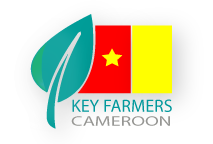FOOD SUSTAINABILITY
Key Farmers Cameroon is aiming for a major structural transition. By integrating biochar into its business structure, synergies can be used to mitigate climate change, promote food sustainability and help smallholder farmers gather capital. Our organisation is striving to be the leading organic non-profit in the world. We provide training in modern organic farming to smallholder farmers who are our members and it is helping them in producing food and cash crops without destroying our environment. Additionally, we train our members and non-members in the agriculture value chains and commodity marketing which gives them more money. Our value chain commodities in terms of food crops include but are not limited to: maize, Cassava, Rice, Plantains, Yams. Our Organic cocoa value chain helps people consume chemical free cocoa products such as chocolate. In addition, Key Farmers Cameroon also produce food and cash crops using simple techniques in making bokashi, compost, green manures and natural organic fertilizers in producing both food and cash crops sustainably.
Organic Maize
Maize is a staple in Cameroon and employs only about 25% of women producers yearly. The crop is cultivated twice a year, but small-scale farmers are still producing at subsistence level because they have no opportunity to advance in large scale maize farming due to lack of finances to acquire proper training. Following the IDRC biochar funded project undertaken by Key Farmers Cameroon and partners from Canada, it was reported that poor farmers typically making less than $2 a day from their crops were able to improve their own incomes using simple techniques both for making the char and adding it to the soil.
Organic Cassava
Cassava is a staple in Cameroon having a multitude of sellers and buyers who trade on this crop on daily basis. Cassava is native of Latin America and was introduced to the African continent by Portuguese traders in the late 16th century. Today cassava is grown on an estimated 80 million hectares in 34 African countries. It is an important crop in subsistence farming as it requires few production skills or input; it is drought tolerant and produces reasonable yields under adverse conditions. However, there are still many problems associated with cassava cultivation among cassava producers in rural communities in Cameroon. Key Farmers Cameroon plans to strengthen the capacities of more rural farmers to increase production of cassava with the production and of use of biochar, compost and bokashi. Cassava farmers would also benefit from carbon credits by burying biochar in soils to improve the environment; when planting cassava.
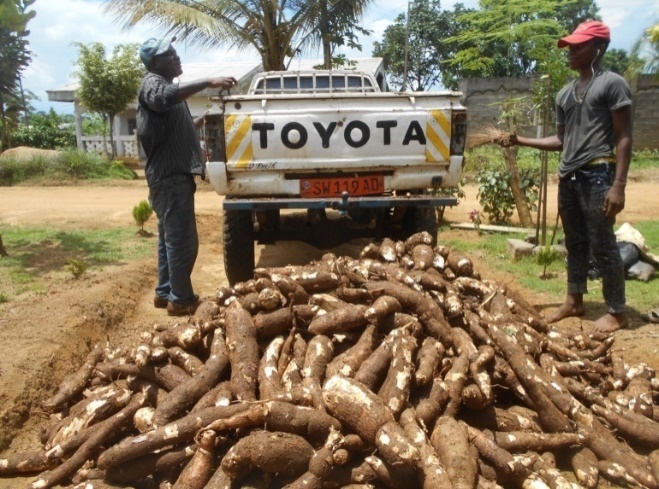
Organic Rice
Nearly all the rice consumed in Cameroon is imported from Asia, Europe and other African countries. The Cameroon government, public and private companies as well as individual wealthy people are not encouraging domestic rice production because they see importation and marketing of rice locally as a lucrative business. This makes things very difficult for poor individuals to eat rice; especially children from poor homes. Growing domestic rice with biochar will help small-scale rice producers in Cameroon to improve on their business while protecting the environment. Key Farmers Cameroon rice initiative began since 2014 with the project titled: “Supporting production of Nerica upland rice in Meme Division“. With financial support from the U.S. President’s global hunger and food security initiative, Feed the Future, Key Farmers Cameroon and its partners began a rice initiative which is increasing yield positive results.

Agroforestry Production
Agroforestry is the practice of integrating trees that help ensure food security, nutrition, income, health, shelter, energy, and a regenerated environment. It also involves the practice of combining animals, fish, and livestock in a chosen environment. This farming system is still new among 78% of rural farmers in Cameroon. Key Farmers Cameroon strives in building the capacities of smallholder farmers in vegetative propagation through the following techniques: marcotting, grafting, budding, cutting, layering; nursery management; tree planting; tree domestication; education on climate change mitigation and adaptation; Non-Timber Forest Products (NTFPs); forest conservation and apply these skills in their daily activities. Agroforestry techniques would involve robust planting of tree crops with biochar. Farmers in this domain will also receive carbon money.
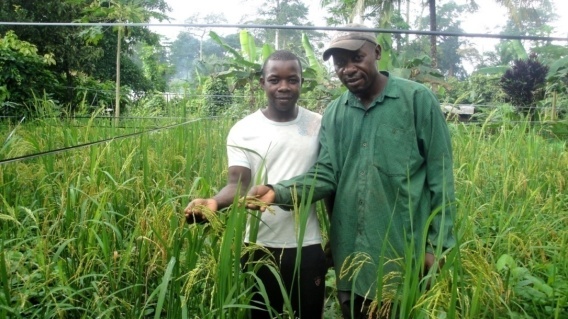
Pig Production and marketing
This course was offered to enable students learn and develop skills in pig production and marketing strategies which enables them in starting their own enterprises in their various communities. During this course, students learned the different pigs which exist in different communities in the world. In all, there are about eight different species of pigs which exist. Added to the above, students were drilled in different operations which take an entrepreneur in setting up a pig pen, care of piglets, compounding the different feeds for pigs and how to market various pigs as well as how to prepare pork for local markets. The most exciting aspects of this training was when students had to visit the different pig pens in the learning environment in order to have greater knowledge and different exercises.
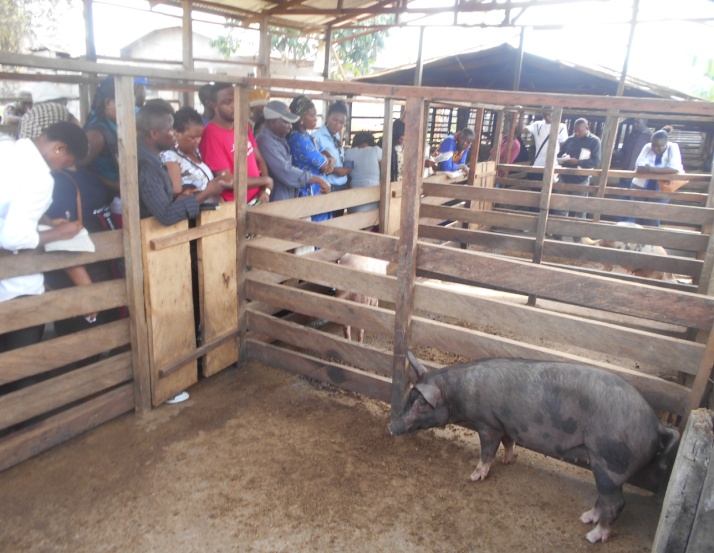
What can we do for you?
Lorem ipsum dolor sit amet, consectetur adipiscing elit. Morbi sollicitudin ante nisl, non feugiat null fermentum lobortis. Aenean placerat ipsum ut velit elementum, in sodales tellus viverra. Phasellus vestibulum, ex non lobortis faucibus, odio nibh luctus massa, id volutpat risus nibh ac felis.
VOCATIONAL EDUCATION AND TRAINING
Background
- Key Farmers Cameroon (KFC) started a vocational agriculture training program with women and youth and have gained more than fifteen years of experience in the field, working with rural farmers.
- During this time, KFC discovered that training programs for farming skills and financial management training are the best solutions to end hunger and poverty in Cameroon’s underserved rural communities.
- From 2017 to date, KFC and its sister microfinance KEFACCUL has intensified their training among women and youth. This has helped some of them to become self-employed.
- As the demand for vocational training increased, KFC has produced a business plan for the establishment of a model vocational training school in Kumba, South West Region, Cameroon.
- KFC is determined to create jobs for over 12 million women and youth from 2022 up to 2031.
Objectives
- To establish a model vocational training school in Kumba as a means to bring lasting solutions to unemployment, hunger and poverty among women and youth in rural Cameroon.
- To promote innovative vocational farming models, food security, agri-business and financial opportunities to rural smallholder farmers.
- To train women and youth in agriculture value chain and support them in job creation and self-employment after graduation.
- To enhance the ability of youths, women and farmers in South West Region in particular and Cameroon in general to increase and sustain agri-business activities.
Learning programs includes but are not limited to:
- Pig production and marketing techniques
- Poultry farming and marketing skills
- Aquaculture management training
- Rapid plantains multiplication (PIF method)
- Modern Agroforestry Technology
- Mushroom cultivation, processing and commercialisation
- Soya beans production, processing and marketing
- Project management
- Business management skills
In each of the domains mentioned above, students learned the whole value chain from establishing their own production, processing, and marketing their own products.
Mushroom cultivation
The main reason for this course was to assist students develop modern skills in mushroom farming and to exploit the market potentials that exist for mushrooms in their various communities as a means to increase their incomes as well as nutritional needs. Since most people in poor rural communities do not always have enough income to buy meat or fish, over 60% of the rural population in Cameroon is under-nourished.
During this course, students covered the following topics: General information of mushroom, the life cycle from mushroom to spawn, beneficial aspects of mushroom, cultivation on sterilized substrate, pest and diseases, indoor versus outdoor cultivation as well as different techniques in conserving and marketing of mushroom.
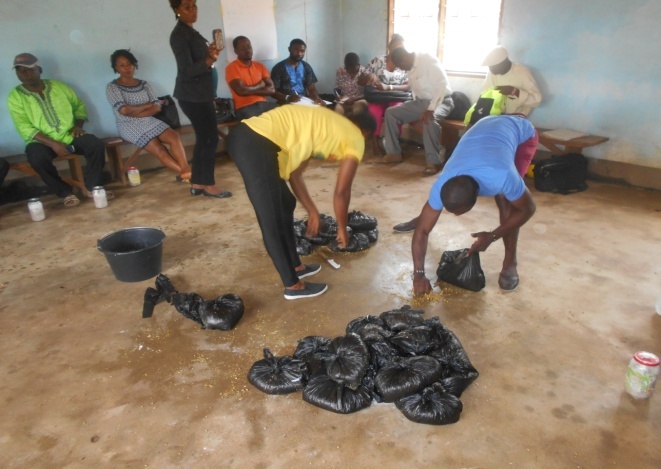
Rapid Plantain Multiplication Technology
The training on rapid plantains multiplication using PIF methods was to enable students in acquiring modern skills in producing clean, disease free plantains plantlets for sale and some for planting on their farms in order to increase production. For this course, students covered the following topics: how to construct a propagation for plantains, procedure for the production of plantains plantlets, the PIF method etc.
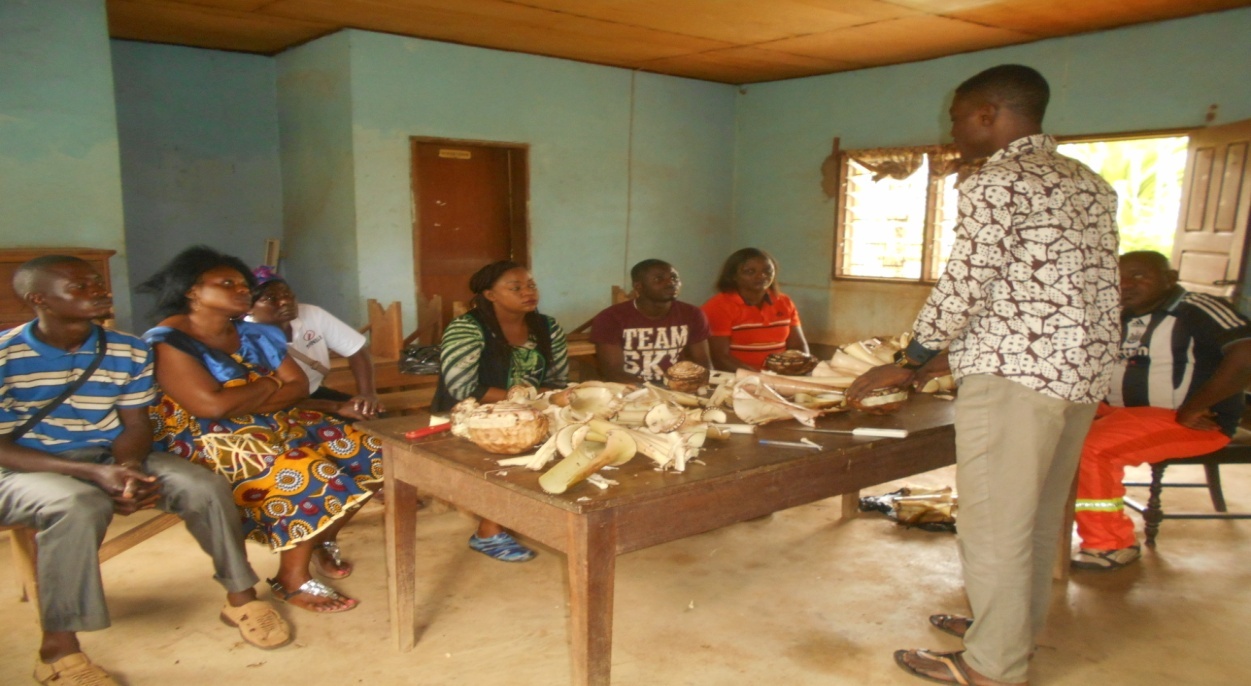
Soya beans
The course on Soya beans cultivation, processing and marketing was presented to students to enable them to have an in-depth knowledge on food and nutrition. During this training, students were taught how to cultivate soya beans, process into soya milk, transform into “soyabeans meat” tofu or soya wadi etc.
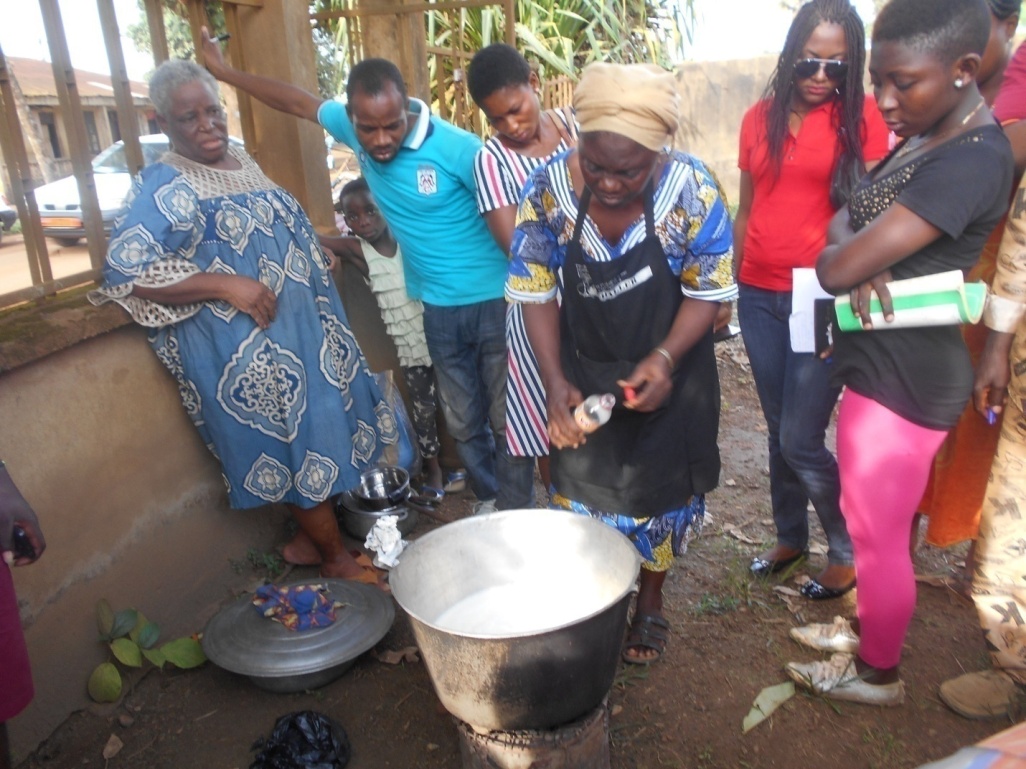
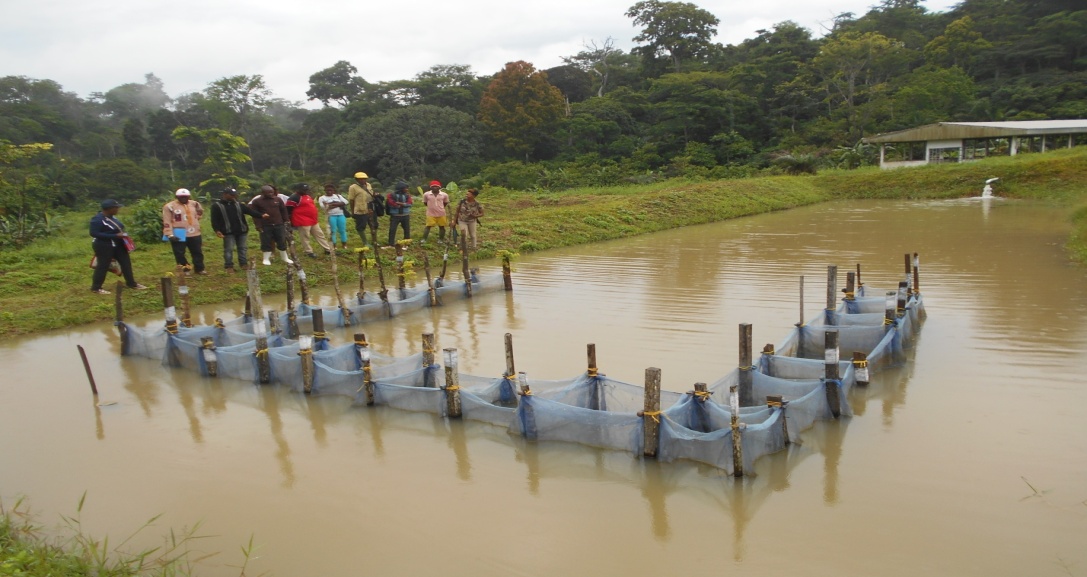
Results of the vocational training – Graduation and award of diplomas

Graduation

Award
